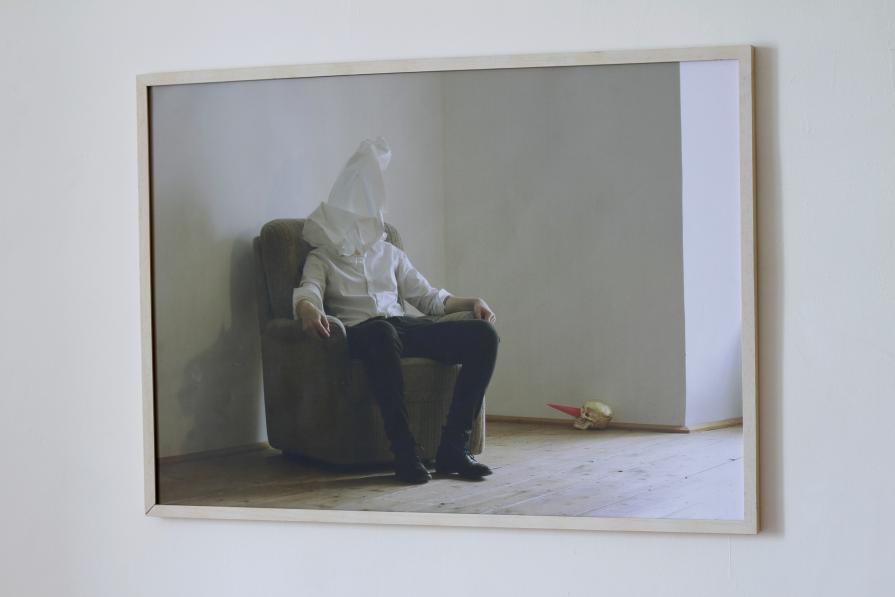Vanitas
In the image, the artist represents the difficulty of expressing his own identity in a society where self-representation is ubiquitous. In order to distance himself from the contemporary lack of aesthetic beauty, the artist directs his attention to the classical models in search of aesthetic legitimization, but in doing so he looses part of his own identity, which becomes blurred and dissolves itself in the surrounding environment.
Trivializing the disturbing relationship between narcissism and death, Vanitas is a mocking still-life which is at the same time a gloomy memento mori.
A geometrical abstract shape conceals mischievously the identity and the vitality of a body, which is constrained by a still and hieratic position, typical of the classical portraits.
The tension produced by the dichotomy life-death, movement-stillness produces a sense of deception in the observer, who can’t perceive clearly whether there is any action unfolding on the image.
It is through this aesthetic research, abstraction and the imposition of rigour to the image that the artist can recover and express his own identity without exhibiting it.








Comments 0
Say something